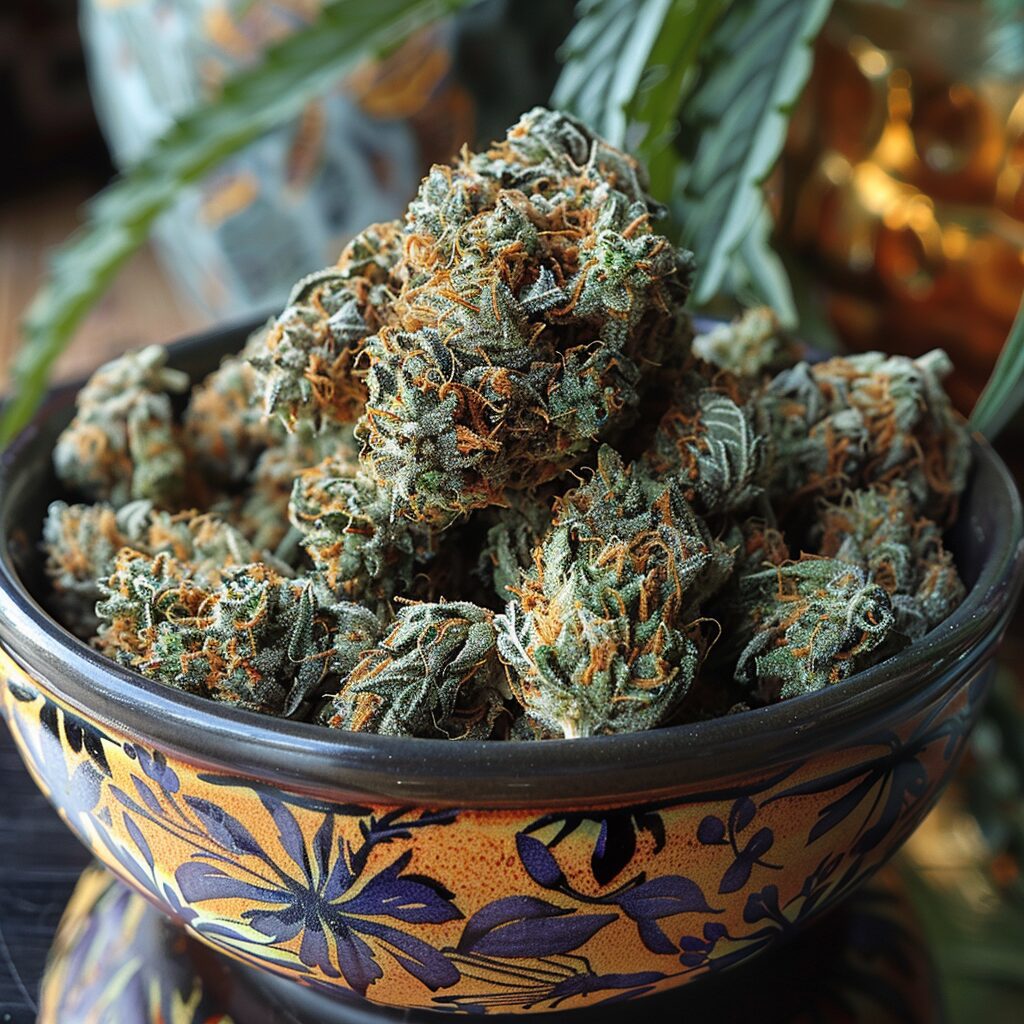People who consume or smoke marijuana may experience what is known as gastrophosis. This increased appetite after marijuana is a well-documented effect that THC has on our endocannabinoid system and brain. What exactly happens to our body that after cannabis we feel such a strong craving and need to make culinary experiments?
After consuming marijuana, the appetite for salty snacks, high-calorie, fatty, flavorful and well-seasoned dishes increases. Some people prefer sweets, e.g. ice cream, candy bars, muffins, while others prefer combinations of all these flavors, which can arouse taste dissonance.
What is the effect of this?
Gastrofaza has become a permanent part of marijuana-smoking culture. It has gained such a strong foothold that some establishments offer so-called comfort food cuisine, serving ice cream in unusual flavors, creative versions of pizza, and fries with different types of toppings or cheese.
All this to provide consumers with access to uncommon food cravings. What's more, many of these dishes were created precisely as a result of marijuana consumption and a sudden surge of inspiration, which later gained a much wider following.
Appetite after marijuana is the effect of THC
Let's take a look at what it looks like from a biological and physiological point of view. Tetrahydrocannabinol (THC) is the psychoactive component of marijuana. Its effects operate by influencing our Cannabinoid receptors in the brain - CB1 receptors. They are part of the endocannabinoid system, which plays a very important role in regulating appetite, although it also has several other important tasks such as improving concentration or mood.
In addition, THC raises ghrelin levels, which is one of the hormones responsible for feelings of hunger, and neuropeptide Y, which stimulates appetite for carbohydrates, for example. It is also important The effects of THC on the hippocampus and the paraventricular nucleus, because there are areas involved in feeling the reward, pleasure and satisfaction associated with eating.
These are not the only factors that increase appetite after marijuana. THC affects the senses - taste and smell, which significantly enhances the meals consumed. Stress reduction is also important, especially in people who have reduced appetite as a result -. Cannabis reduces stress levels, so it reduces the appetite suppressant.
What is worth knowing about gastrophase in medicine?
Some researchers believe that appetite after marijuana is one of the evolutionary factors that was supposed to work during periods of reduced meal variety - to increase appetite for foods that were seemingly less appealing, but that allowed people to survive.
Today intensified Appetite after cannabis is a desired effect in many medicinal marijuana therapies For patients whose diseases cause reduced appetite (cancer, HIV/AIDS). It is supposed to help maintain weight and provide emaciated bodies with food. Current research on marijuana consumption and the effect of gastropathy is also being conducted toward treatment of eating disorders.
Sources:
Cannabinoids and appetite: food craving and food pleasure, International Review of Psychiatry, 2009 Apr;21(2):163-71.
Endogenous cannabinoids and appetite, Nutrition Research Reviews, 2001 Jun;14(1):65-86.
Should gastroenterologists prescribe cannabis? The highs, the lows and the unknowns, World Journal of Clinical Cases, 2023 Jun 26;11(18):4210-4230.








